
- Banquet Tickets
- Banquet Raffles
- Sponsors & Donors
- Sensory Safari
- Board of Directors
American Wilderness Leadership School
Nestled in the beautiful Bridger-Teton National Forest near Jackson Hole, Wyoming, Safari Club International Foundation’s (SCIF) American Wilderness Leadership School (AWLS). Established in 1976, AWLS has provided an accredited wildlife management program for 5,473 teachers who reach more than a million students annually. Educators attending AWLS receive useful hands-on training and experience they can use in the classroom to teach their students about the positive role hunting plays in wildlife conservation.
In 2014 the Northwoods Chapter of SCI, along with the Hunters Legacy Fund of Safari Club International Foundation (SCIF), provided financial support for three Upper Peninsula teachers to attend the AWLS intensive 8-day workshop. The sponsorship included travel, lodging, and meals as well as conservation instruction. They received instruction in conservation science and the role of hunting in wildlife conservation, in addition to hands-on shooting instruction for rifle, shotgun, and bow. The instructional materials they received will allow them to bring back this information to their students.
Information regarding the AWLS program, and applications to attend a session, can be found at: www.safariclubfoundation.org/education/awls. Upper Peninsula educators wishing to attend AWLS may send their completed application to: Northwoods Chapter SCI, 235 Soderena Rd., Crystal Falls, MI 49920.
In July of 2009 the Northwoods Chapter of SCI provided financial support for 4 Upper Peninsula teachers to attend AWLS in Jackson, Wyoming. Clare and Becky Arbic (stories below) were 2 of these teachers. Both felt it was a life-changing experience and are eagerly using the knowledge and skills they received to pass along these lessons and enthusiasm to their students. Clare Arbic—There were 28 teachers in our session with around 9 being from Michigan. The AWLS campus is in an absolute breathtaking location along Granite Creek. Our days were packed from around 6:30 a.m. until 8:00 p.m. Actual classroom time included activities such as wildlife ecology and conservation lectures and walks, outdoor survival classes and labs, stream ecology lectures and lab time collecting and identifying bugs. Hands on activities included fly tying, fly casting, shooting safety and a full day of shooting sports including .22 cal pistols (revolvers, semi auto, and a single shot Thompson Contender), .22 rifles, .50 cal Thompson percussion muzzle loaders, 12 ga and 20 ga shotguns shooting trap, and lots of archery shooting as we were all trained and certified to be instructors for the National Archery in the Schools Program (NASP). Many of the participants had never shot a gun or a bow before. We also participated in some field trips including lectures from specialists with the Wyoming Bureau of Land Management ,Wyoming Department of Natural Resources Wildlife Biologists, and the National Elk Refuge personnel. We had lectures at Teton National Park regarding ecology and the history of the park and were also shown the antelope wintering grounds and migration routes. The staff and instructors at AWLS were amazing; certainly all experts in their respective fields. We were given lots of useful tools for our classrooms. Throughout all of our activities the underlying theme was to bring all of our activities home and share them with our students. As teachers we have contact with hundreds if not thousands of students over the course of our careers. This presents us with the tremendous opportunity to inspire our students and instill a love of the outdoors, and an understanding of what being a good sportsman/sportswoman is all about. I was very fortunate to have been able to attend AWLS with my wife. Since returning from AWLS my wife, at 32, has furthered her enthusiasm for the outdoors and bagged her first whitetail during the early antlerless hunt with her father in the blind with her. It’s never too late to start hunting!
Becky Arbic —This summer I was blessed with the opportunity to spend a week at the AWLS in Jackson, WY. I have been around hunting my whole life but hadn’t hunted much myself. As part of the AWLS program I learned how to shoot safely several types of guns. After training with awesome instructors, I felt very confident that I could safely handle my own gun when hunting – something that made me nervous before. At AWLS I learned how hunting supports conservation efforts, this new knowledge along with my new confidence in my shooting gave me the push I needed to be serious about hunting. This fall I shot my first deer with my dad sitting next to me on the land I grew up on. It is a day I will always treasure. As I was getting ready to take my shot I could hear my instructors from AWLS, I am confident that my humane kill was due in large part to the fantastic instruction and great experience in Jackson. I am now a hunter thanks to Safari Club International, and I am anxious to inspire my students by sharing my experiences and the knowledge I received at AWLS. Thanks again for sending Clare and I to AWLS, it really did change our lives.
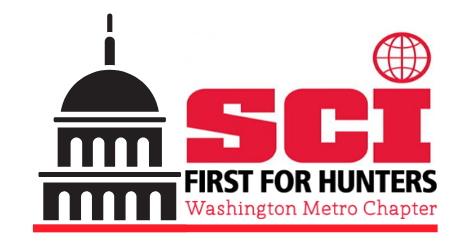
Chapter Leadership
President – Andrew Kovalcin 1st Vice President – Matthew Wise Secretary – Michael Brairton Treasurer – Chris May VP of Membership – Brian Calabrese VP of Fundraising – Phil Hoon At-Large Board Member – Graham Hill At Large Board Member – Chris Timmerman At Large Board Member – Dennis Kirk Chapter Advisor – Ben Cassidy
President – Andrew Kovalcin
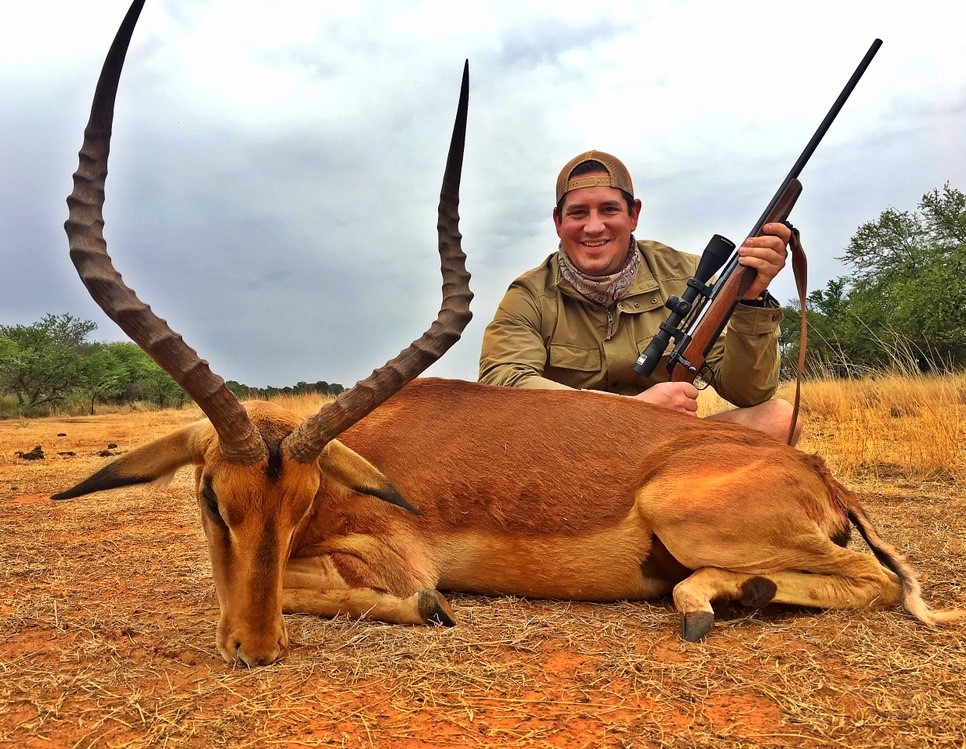
Andrew Kovalcin is a seasoned public affairs professional with over fifteen years of experience managing political, regulatory, and legislative issues for his clients which include fortune 500 companies. He currently serves as the principal of Advanced Advocacy, an independent advocacy and public affairs firm.
His diverse set of skills and experience come from his blend of work in Congress, agencies and trade associations and with state legislatures. Kovalcin has managed global coalitions, built national & international strategic alliance networks, acted as a national spokesperson and designed and implemented multifaceted issue advocacy campaigns. He has extensive experience engaging, organizing, and activating advocacy organizations, think tanks, academics, policy experts, and grassroots leaders.
As a passionate hunter, Andrew appreciates diverse hunting experiences while remaining dedicated to protecting the right to hunt and to promoting wildlife conservation worldwide.
Kovalcin attended North Carolina State University and currently resides on Capitol Hill.
1st Vice President – Matt Wise
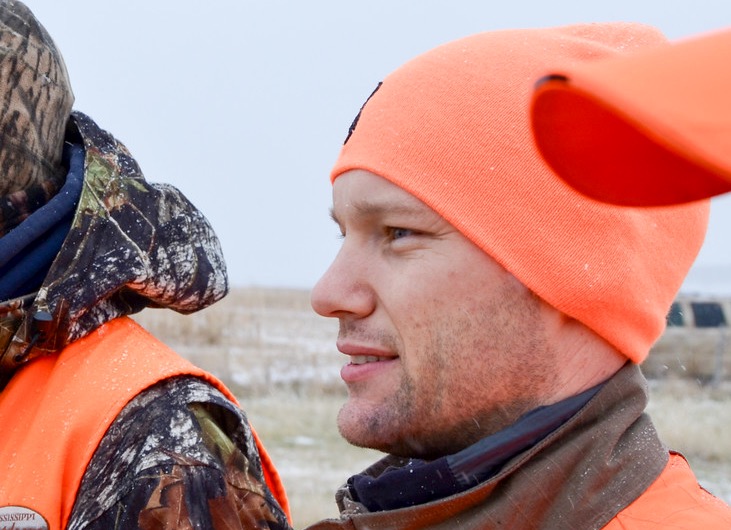
Matt Wise grew up hunting the swamps and pine woods of South Mississippi. After graduating from the University of Mississippi, Matt moved to Washington, D.C. to serve as a Congressional Aide in the U.S. Senate and the U.S. House of Representatives. Matt currently works as a lobbyist whose duties include representing the rights of gun owners and sportsmen in America. He lives in Washington, D.C. with his wife and their two small children.
Secretary – Michael Brairton
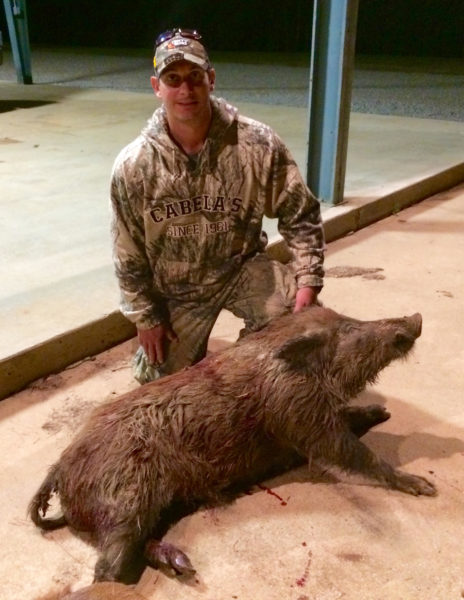
A native of Pittsford, NY, Michael A. Brairton grew up in the outdoors on the Finger Lakes and Lake Ontario. He currently serves as the Senior Director of Government Relations for PSEG, a diversified energy company headquartered in Newark, New Jersey. His passion for the outdoors includes hunting, fishing, shooting sports or any other activities that allows him to be outdoors with family and friends. Michael is a life member of the NRA, and a member of SCI and Ducks Unlimited. He earned a BA in History from the University of Maryland University College. He resides in Arlington, VA with his wife and 2 kids.
Treasurer – Chris May

Chris May grew up in South Louisiana, where he became an avid outdoorsman while exploring the woods, swamps, and bayous that offered a myriad of opportunities to hone his skills as a hunter and conservation enthusiast. His love for the outdoors was a factor in his decision to attend The University of Mississippi in Oxford, MS. During his time in Oxford, Chris was able to access some of the best hunting land in America from the rolling hills of North Mississippi to the legendary Mississippi Delta waterways. Chris currently serves as President of CM Solutions, LLC, a CFO Outsourcing, business management, and compliance firm based in Washington, D.C. and is actively involved in the community as a D.C. Chair of Maverick PAC, Board Member of NextGen Project Hope, and a Board Member of Indomitus Capital, LLP. Chris is perpetually ready to explore more of what the great outdoors has to offer.
Vice President of Membership – Brian Calabrese
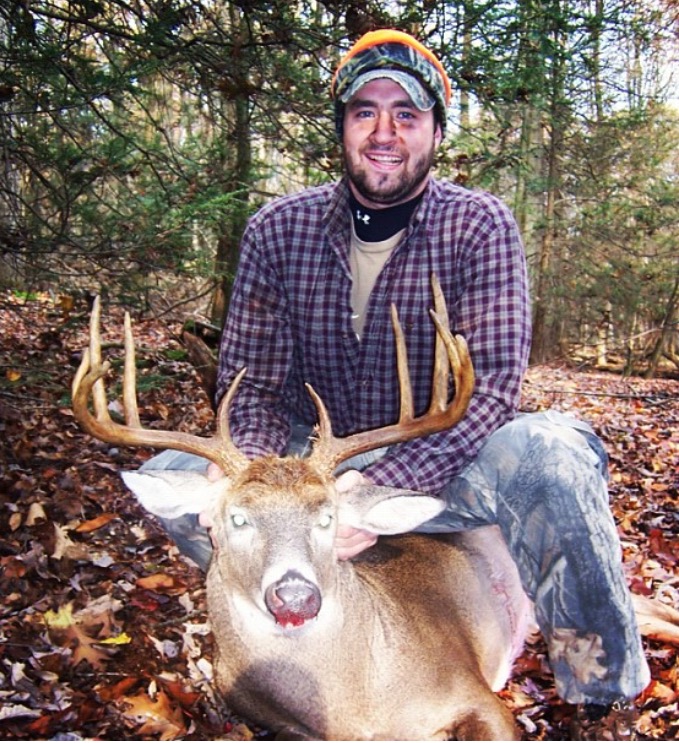
Brian Calabrese is from Syracuse, NY and grew up hunting and fishing in the Finger Lakes region. He currently serves as a lobbyist at the National Rifle Association’s Institute for Legislative Action. Prior to NRA, Brian worked for several years in the U.S. Senate and later completed his law degree. He is a member of SCI, National Sportsman Association of VA, and life member of the NRA. Brian attended the University of Delaware and Widener Law School, and he currently resides with his wife Stefanie in Alexandria, VA.
Vice President of Fundraising – Phil Hoon
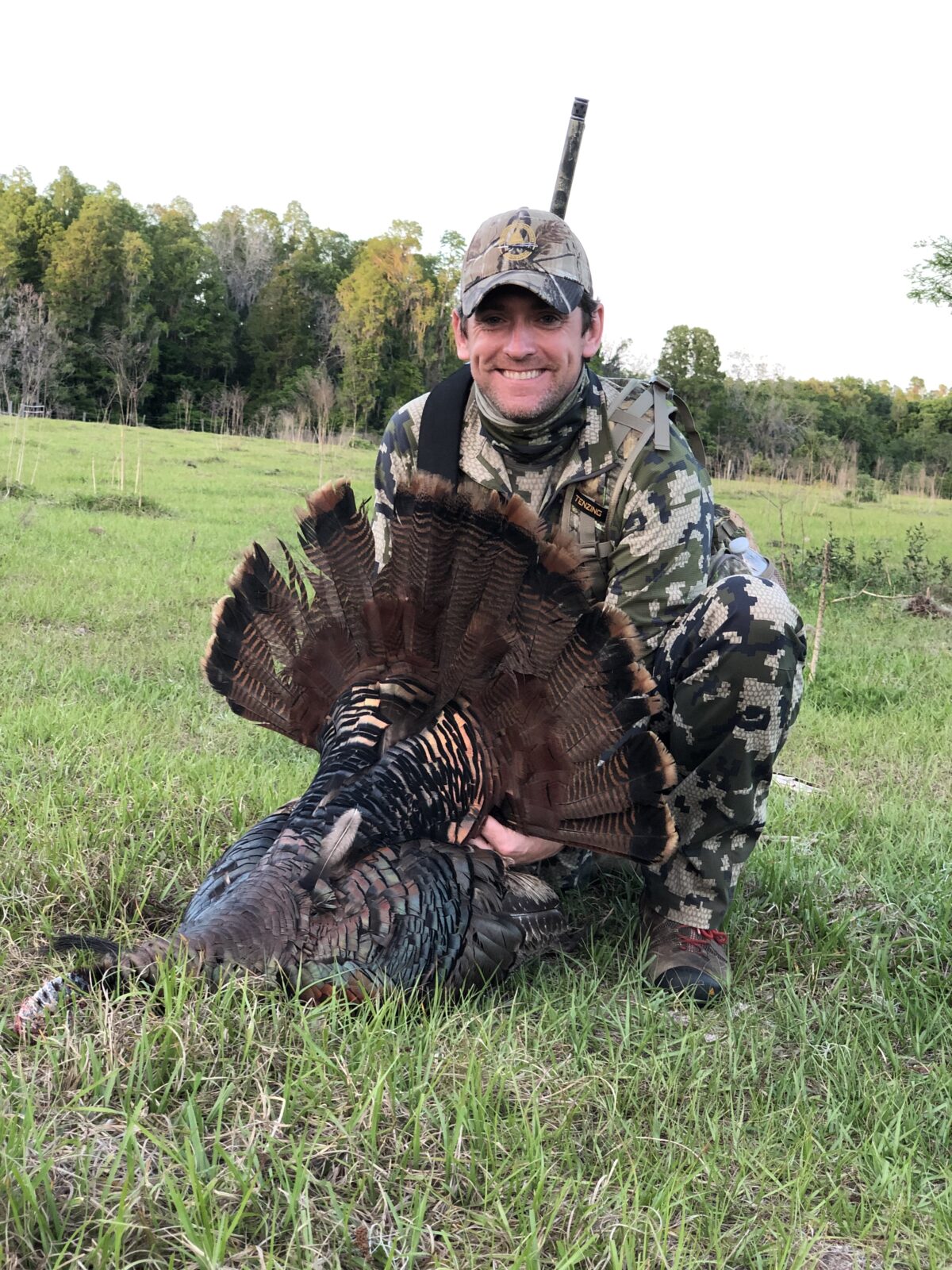
Phil serves as the Vice-President of Capitol 6 Advisors. He advises a diverse group of clients, ranging from leading outdoor brands to renewable energy startups. Phil began his D.C. career in the political campaign office of then-U.S. Senate Majority Leader Harry Reid. Following the campaign, he served as the Senior Director of Corporate Relations at the Congressional Sportsmen’s Foundation. For nearly a decade he managed the Foundation’s sponsorships, which included corporate, foundation and individual contributors both in and out of the outdoor space.
At-Large Board Member – Graham Hill
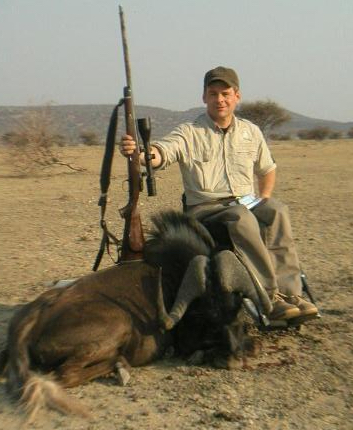
Graham Hill is a founding member and past president of the Washington Metro Chapter of SCI. A native Texan, Graham began hunting and shooting as a child – a passion he currently is sharing with his three sons as they learn to shoot and hunt. During his 25 years in Washington, Graham has served Members of the House and Senate, and as senior Congressional staff for the Congressional Sportsmen’s Caucus. Graham was appointed by President George W. Bush and confirmed by the Senate to the National Council for Disability (NCD). At the NCD, Graham advocated for mobility impaired hunting and shooting, an effort he continues today on a national level with the NRA, FCSA and other organizations. He is a 3-Gun and Shotgun competitor, a life member of NRA, SCI, FCSA, TSRA and NYSRPA. He serves as President of the Fifty Caliber Institute (FCI), and on the Board of FCI, NRA and the GUDC.
At-Large Board Member – Chris Timmerman
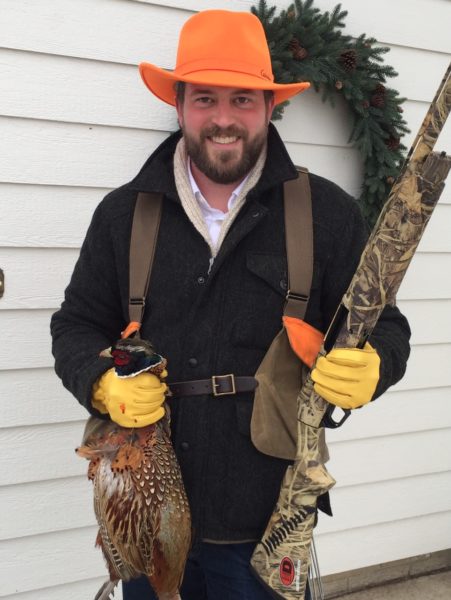
Christopher Timmerman is a Manager of Government Affairs at Boston Scientific. In his role, Chris advocates on behalf of the company on Capitol Hill, oversees the company PAC program (BSC PAC), and manages BSC’s grassroots efforts. Prior to joining BSC, he worked in campaign finance, raising funds for Senators, Representatives, Governors, and a candidate for President. He got his start in D.C. during the 2008 election cycle at the NRSC after graduating from Emory University. A lifelong sportsman, Chris grew up in South Dakota hunting pheasants, waterfowl, and deer.
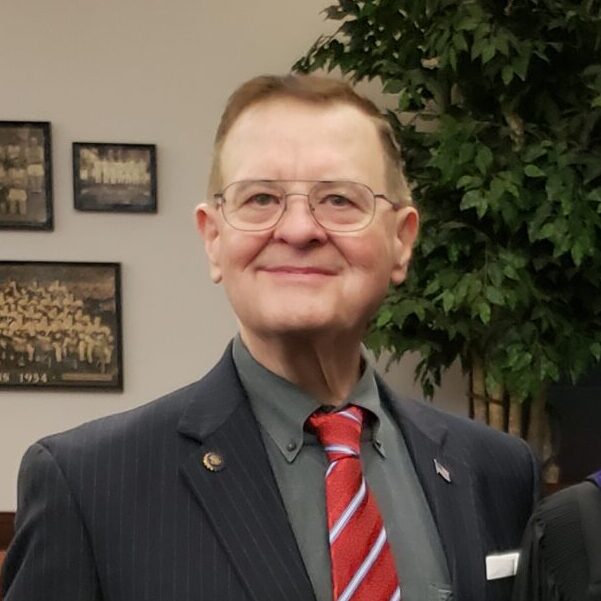
SHOOTING SPORTS/HUNTING/CONSERVATION/ related: NRA (Endowment), SCI (Life and three regional chapters), Rowland Ward Guild of Field Sportsmen (Life), Hunters for the Hungry, Conservation and Waterway, Ducks Unlimited, etc.
Frequent Volunteer at Fairfax Rod & Gun Club (Past General Counsel attorney for Club and Foundation): Boy Scouts events and training, Cleanup Days, prior club Security Committee service, Doe culling efforts, Sighting in Days, and introduction of many hundreds of first-time shooters brought into shorts shooting using club facilities with my own equipment and supplies of firearms and ammo, sponsored many new members over the years. Member since the 1990s.
DENNIS DEAN KIRK, Attorney at Law, Litigation in Administrative Agencies, State and Federal Courts in law firm with presence in Virginia and DC that provides corporate and individual; and, private sector Inspector General and regulatory compliance service, with legal and management/leadership support for operational programs, as well as personnel and systems safety, hotline, and compliance and ethics programs, so that they are effectively monitored and overseen. Develop and execute solutions for employment, labor relations, policies, practices, business process reengineering, Lean Six Sigma special operations, efficient cost-saving reorganizations, and enterprises supporting entrepreneurial capitalism, physical and institutional infrastructure, and national security interests of the US and its allies. (Lead Counsel in US DC Circuit on Iran-Contra and filed client statement in Office of Independent Counsel Report; US Air Force; Wed Tech; and Pentagon Ill Wind government investigations, among others).
MEMBER (2021), Department of Justice Coordinating Council on Juvenile Justice and Delinquency Prevention. ASSOCIATE DIRECTOR (2020), EMPLOYEE SERVICES DIVISION, OPM, (Washington, DC). Supervised Seven Senior Executive Service Centers and 160+ federal employees on all US Government policy on federal employment matters. Worked directly with the key OPM Leadership, SES, and staff elements in OPM, Employee Services, Accountability and Workforce Programs areas, including critical Inter-agencies task forces like the Labor Relations Group, providing substantial contributions to executing workplace environment concepts, conferences, evaluations, analysis of papers and continuously striving to make major shifts in approaches and possibilities in employee-management relations to improve the federal employee workforce experiences and performance, deploying creative ideas and suggesting key targets for innovations on how to excel in difficult labor circumstances, meeting OPM objectives and program goals, prioritizing for better delivery of employee services, and achieving resulting paradigms exceeding the President’s Management Agenda goals, rendering outstanding performance. Demonstrated commitment to improve collaboration, transparency, and communication among OPM leadership to make better, more efficient decisions; actively engaged in Agency activities and efforts that go beyond the executive’s normal program responsibilities; contributed to corporate initiatives that help further important mission priorities and strategic goals.
Chapter Advisor – Ben Cassidy
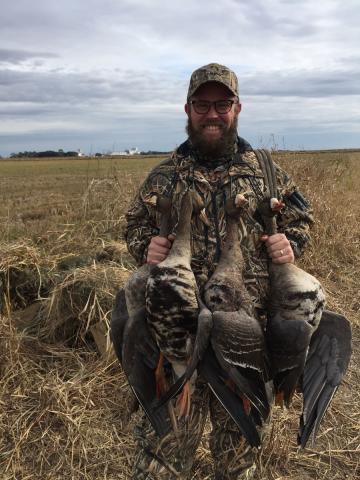
Benjamin J. Cassidy currently serves as Safari Club International’s Director of Government Affairs. In his role, he oversee SCI’s Government Relations, Legal Advocacy and International Affairs Departments. Cassidy joined SCI from the U.S. Department of the Interior, where he served as Senior Deputy Director for the Office of Intergovernmental and External Affairs and as Senior Policy Advisor for Water and Science. Previously, he worked for the National Rifle Association’s Institute for Legislative Action and the National Republican Congressional Committee. He has served SCI in volunteer positions at the chapter level.


LEADERSHIP BIOS

John Sturgeon: SCI Alaska Chapter President
John has been in Alaska since 1970. Prior to that time he served in the US Navy with 2 tours in Viet Nam. He has a BS in Forestry from the University of Minnesota. He has worked for the US Forest Service as well as the State of Alaska as a forester. He ended his career with the State as the State Forester and was appointed to that position by 2 governors. Since 1986 he has worked in the private sector as President of Koncor Forest Products which currently has operations on Afognak Island. He also owns several other businesses that are in the building products sector.
John is an avid outdoorsman and enjoys all types of hunting, fishing, camping, hiking, boating and snow machining. He has hunted moose on the Yukon River consecutively since 1971. He also goes on an annual elk hunt in both Alaska and Montana. Still an avid sheep hunter at 75 he took his daughter on a successful sheep hunt (40” ram) in 2017. He has a mt. goat and Kodiak brown bear in the all-time B&C record book. In 2017 John was awarded the Governor’s Conservationist of the Year for his efforts to preserve access to Alaska’s river. He took his battle all the way to the US Supreme Court and won 2 unanimous 8-0 ruling. He was also awarded the SCI’s president’s award in Las Vegas in 2017.
One of my goals as the AK Chapter president is to increase the involvement of the younger generations in protecting our sheep hunting heritage. In my time in Alaska I have seen the opportunities for sheep hunters drop drastically. If we are to retain our hunting heritage in Alaska it is going to take a lot of hard work.
John is active in many organizations and has served on many Boards and commissions including: Alaska Board of Forestry, Alaska Forest Association, Trustee- PNW Medical University, Resource Development Council, The Alaska Outdoor Council, Anchorage South Rotary, Alaska Outdoor Access Alliance, The Alaska Clean Water Commission, the PNWU Advisory Board and The Nature Conservancy of Alaska.
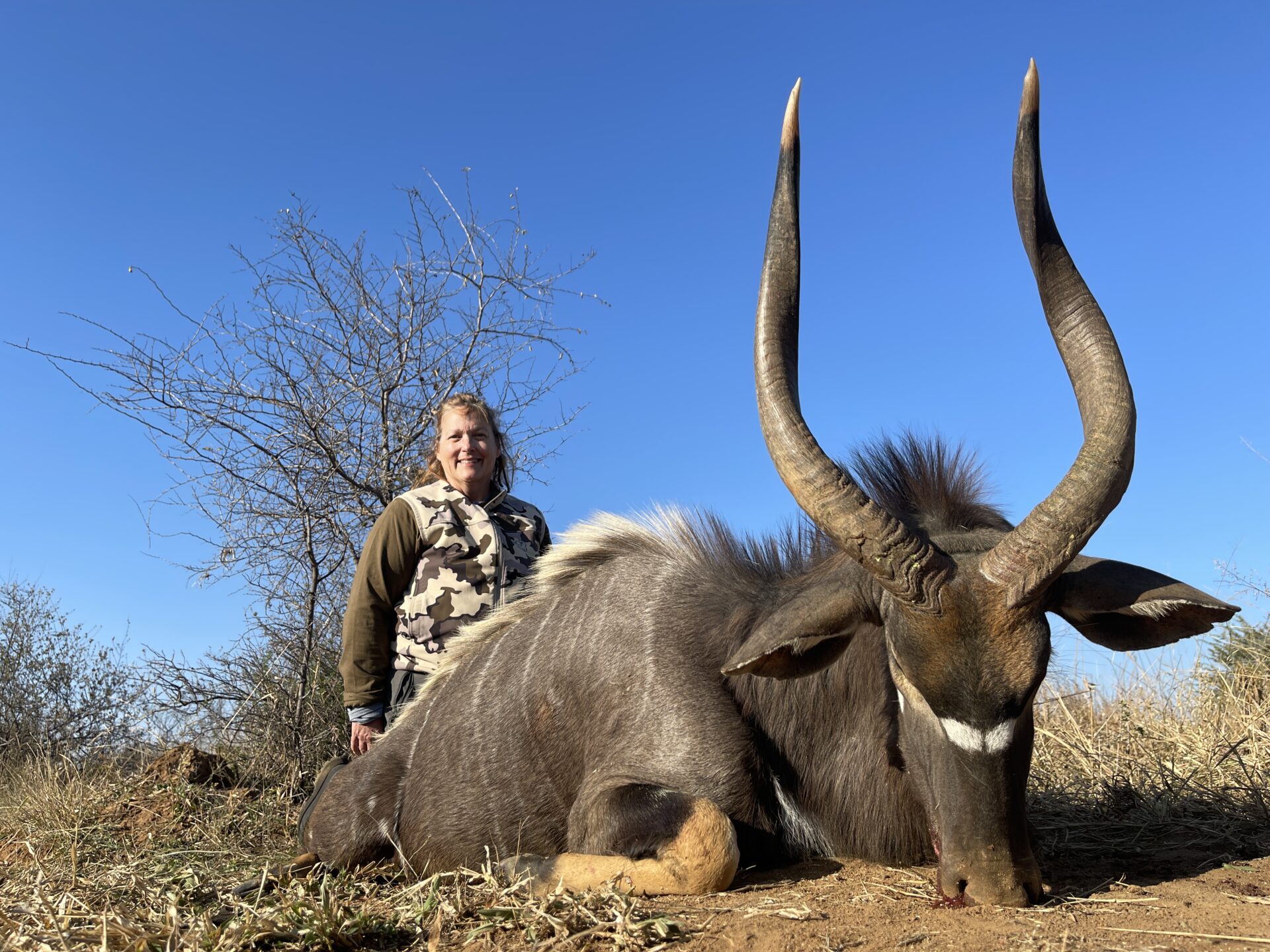
Terri Mayeur: SCI Alaska Chapter Vice President
Terri Mayeur has been a resident of Alaska since August 1992. Terri loves the lifestyle that we are afforded here in Alaska through hunting and fishing. She grew up in a very anti-hunting / anti-gun home. When she moved to Alaska, she was introduced to fishing and a few years after that, to hunting. It was an interesting transition, but Terri quickly realized how important it was to eat wild, organic meat that was ethically harvested. She learned what a valuable learning opportunity hunting and fishing was for her family and saw the importance of teaching our children about where our food came from. Not from the sanitized meat counter at the grocery store, but from the wild and the circle of life.
She believes it is up to us, as stewards of this earth, to protect the population of animals. A well-managed population of animals keeps the animals healthy and available for generations to come.
In 2020 Terri decided to “put her money and volunteer time into the activities that she supports, buy placing herself up for election and becoming and SCI-AK Board member. She has been a great assest to our Chapter
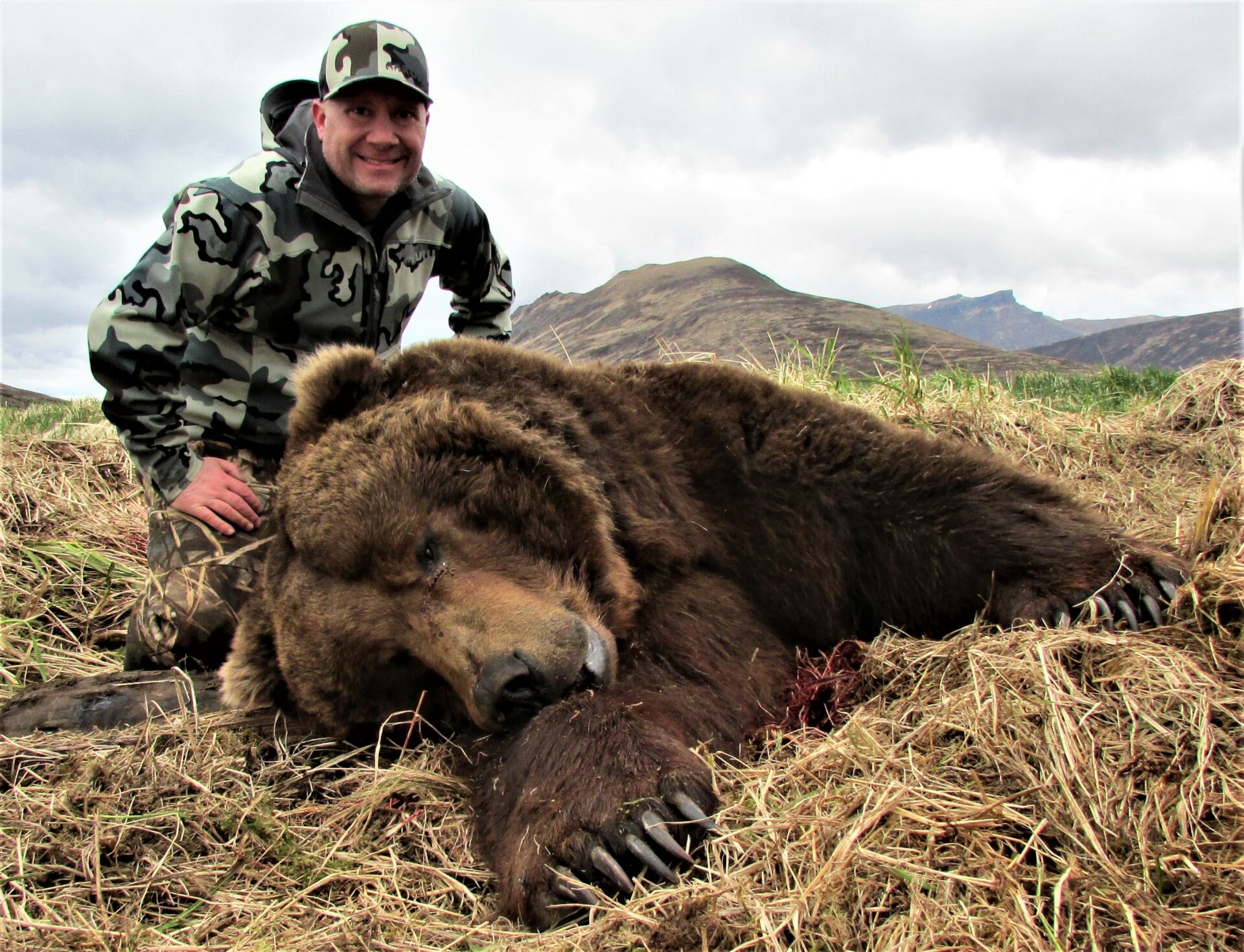
JOEL M. HELGERSON : SCI Alaska Chapter Secretary
Joel Helgerson was born and raised in Elkader, IA in July 1976. His earliest recollections are of my father teaching me to shoot a bow. As an avid outdoorsman, his father taught him how to hunt, fish and trap. After high school Joel attended the University of Northern Iowa where he received a BA in Elementary Education and was commissioned as an Infantry 2nd Lieutenant in the United States Army through the Reserve Officer Training Corps (ROTC) in May 2000.
During the last 20 years, Joel’s career in the Army has taken him around the orld through multiple assignments, both in the US and overseas. This has provided him with the opportunity to hunt and fish in multiple states. Joel moved to Alaska in 2016 and became a legal resident in 2017.
The outdoors has had such a significant impact on his life, and he can’t imagine a better place than being in the woods or on the water.
Joel states that, as with everything else, people take for granted that the outdoors is a finite resource and one that needs to be managed. Organizations like SCI, ensure that this resource will be enjoyed by future generations. He tries to spend as much time as possible in the outdoors, and he wants to do his small part as a member of SCI to give back for what he has enjoyed.
MEMBERSHIPS:
Safari Club International (AK Chapter, 2016-Present)
Wild Sheep Foundation (AK Chapter, 2016-Present)
Iowa Bowhunters Association (Lifetime Member)
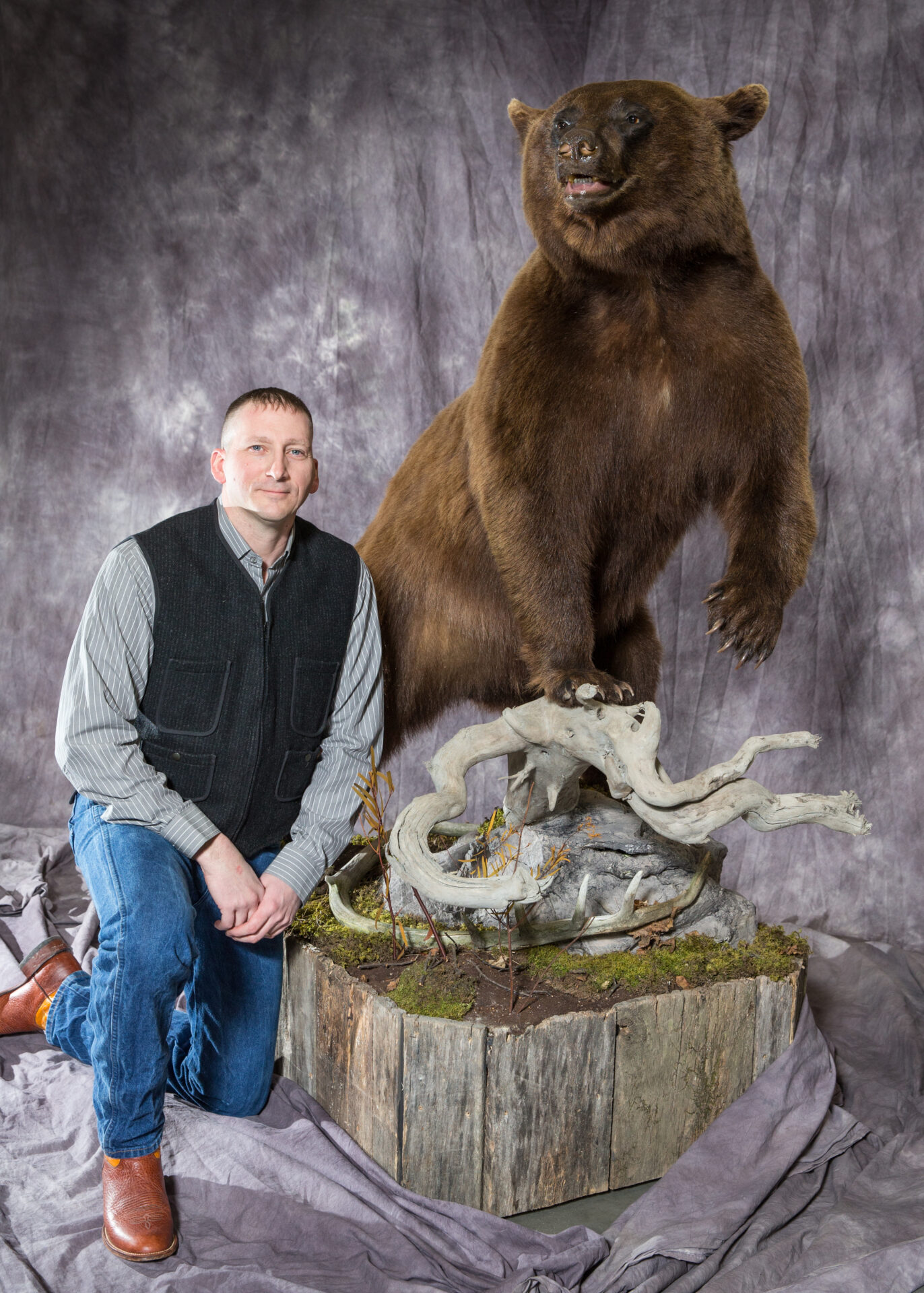
Chad Riedel: SCI Alaska Chapter Treasure
Chad grew up on a farm and ranch ten miles from Cartwright, North Dakota, which is seven miles east of the Montana border just past the Yellowstone River. At an early age he was in the field with his father looking after the land and the animals that inhabited it. His father started him early, hunting prairie dogs and pheasants at age 5. He grew to love the sport and was able to take his first whitetail at age 12. He was hunting every minute he could, if he wasn’t on the back of a horse chasing cows or fixing fence.
In 2000 he got married to Mindee, and they have two wonderful boys: Codey (18 yrs. old) and Hunter (12 yrs. old). In 2002, he decided to join the USAF, and Elmendorf AFB was his first duty station.
He was an Alaska Big Game Guide from 2003 to 2008. He loved every minute of it, guiding his clients in remote places for dall sheep, mountain goat, brown bear, moose and black bears. In September 2008 he got transferred to Grand Forks AFB, North Dakota. Chad continued to work for the same registered guide chasing whitetail and mule deer in the sand hills of Nebraska. Two and a half years later, they packed up and moved back to Alaska, giving up his assistant guide license to be able to enjoy Alaska with his wife and kids. Chad and his family reside in Chugiak, Alaska. He continues to serve in the USAF and plans on retiring in 2022.
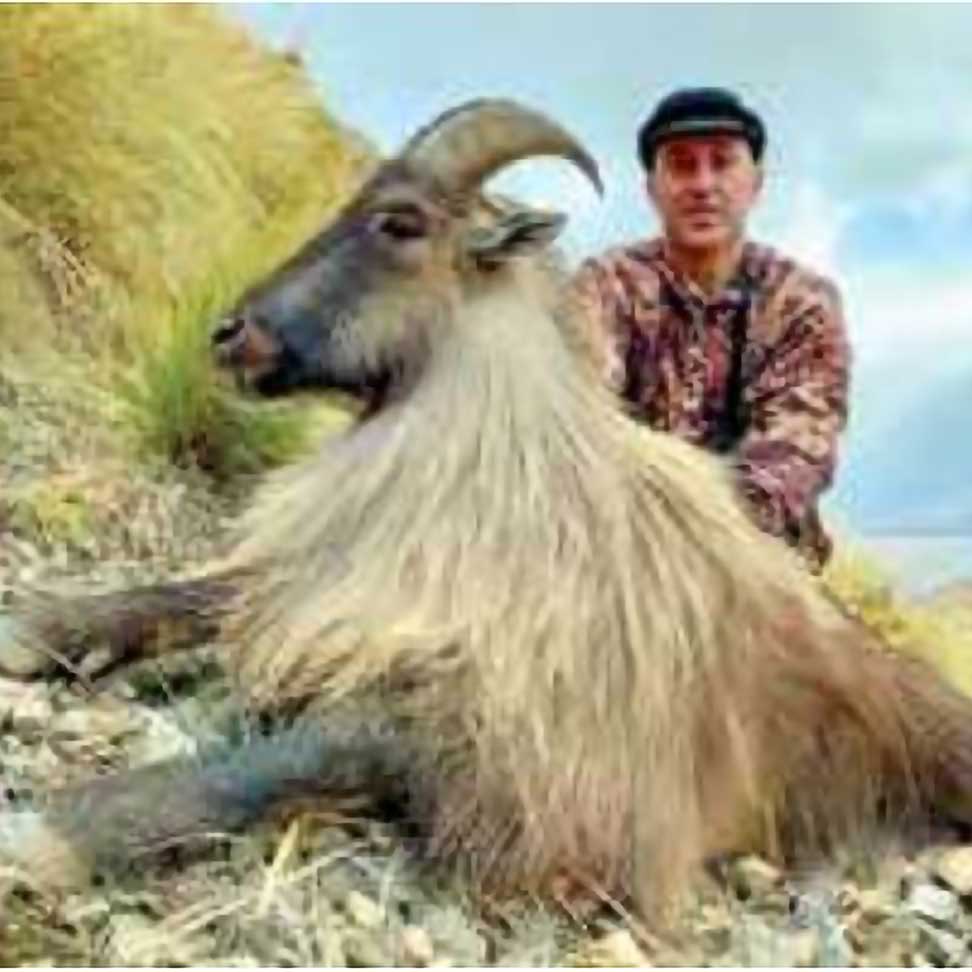
David Garganta: SCI Alaska Chapter Director
In 1970, at the age of 10, Dave Garganta moved to Alaska with his family from Florida. He graduated from Chugiak High School in 1979, joined the Alaska Air National Guard in August 1980 and spent the next 38 years in service to his country. He is an Alaska registered guide and outfitter of over 27 years and has hunted, fished and trapped all corners of Alaska from Southeast to the Arctic, the Alaska Peninsula to the Interior. When he is not hunting, guiding or fishing in Alaska, he enjoys traveling to hunt in other states and countries. His travels include Oregon, Arizona, Montana, Wyoming, Colorado, Namibia, Zimbabwe, Argentina and New Zealand. Dave is a lifetime member of SCI, SCI Alaska Chapter, NRA, Boone & Crockett and the Veterans of Foreign Wars association. Dave’s passion for hunting, fishing, trapping and wildlife conservation is a great fit for our organization.
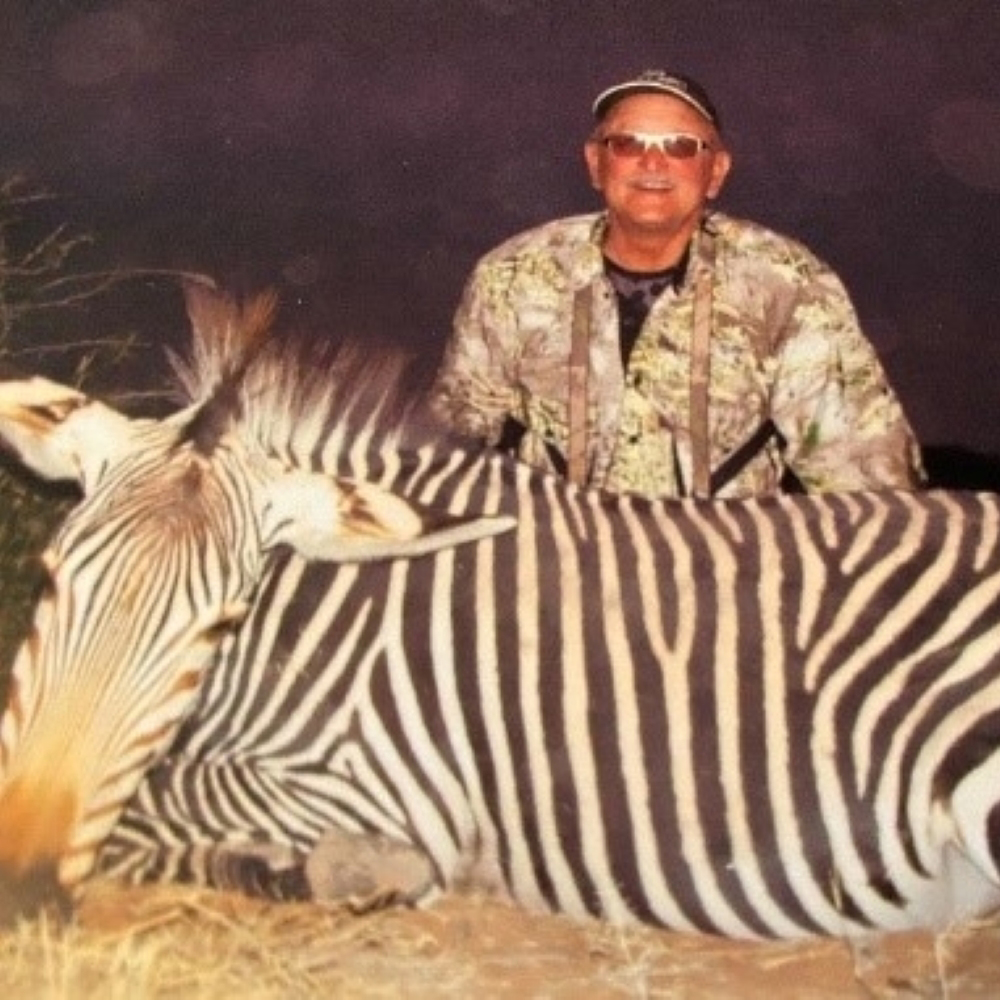
George Jacoby: SCI Alaska Chapter Director
I grew up in the Spokane Valley and graduated from E.W.S.C with a biology degree. After graduating I moved to Anchorage and have never left.
As a kid I followed my dad around hunting and fishing all over Washington State. Now my son and oldest grandson follow me around caribou hunting and fishing on the Kenai River.
After 40 years being self-employed, I finally retired and spent 5 years on the Anchorage Advisory Committee and now 6 years on the Board of SCI. I lead the taxidermy committee for our banquet display and am always looking for diversity and unusual mounts.
I do not want to look back and say “We should have done that (to save a species).” Let us react now to save our hunting heritage.
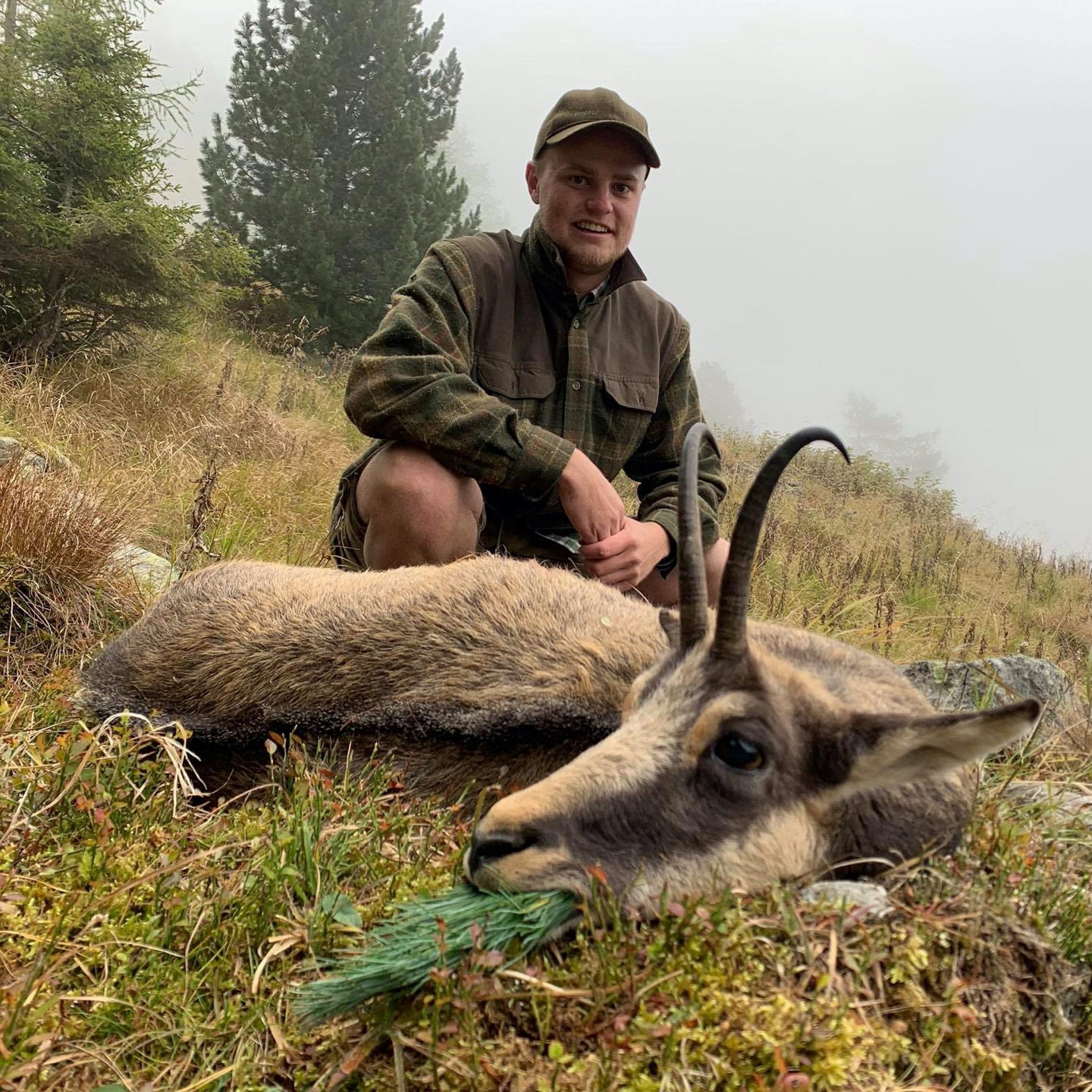
Roger Jorgensen: SCI Alaska Chapter Director
Roger Jorgensen, 25, of Eagle River, Alaska is North American Representative of FN Hunting, HHK Safaris, & Chelet Safaris. Roger was active in the Hunter Education program with the Alaska DFG as well as Joint Base Elmendorf Richardson. He also ran the Alaska Chapter SCI magazines for the military program. Roger formally was a youth director at Alaska Chapter SCI, and a graduate of AWLS. He received the “Youth Hunter of the Year” in 2005 and 2009, “Outstanding Youth of the Year” in 2007 and “President’s Award” in 2011.
Roger has hunted around the world, including Zimbabwe, Austria, Hungary, South Africa, Namibia, Hawaii, and Alaska, harvesting 20 trophy animals. Roger is returning to Alaska, after 6 years in the lower 48, and looks forward to joining the Alaska Chapter Safari Club again as a Director once more in order to further Wildlife Conservation, and Education in his home state of Alaska.
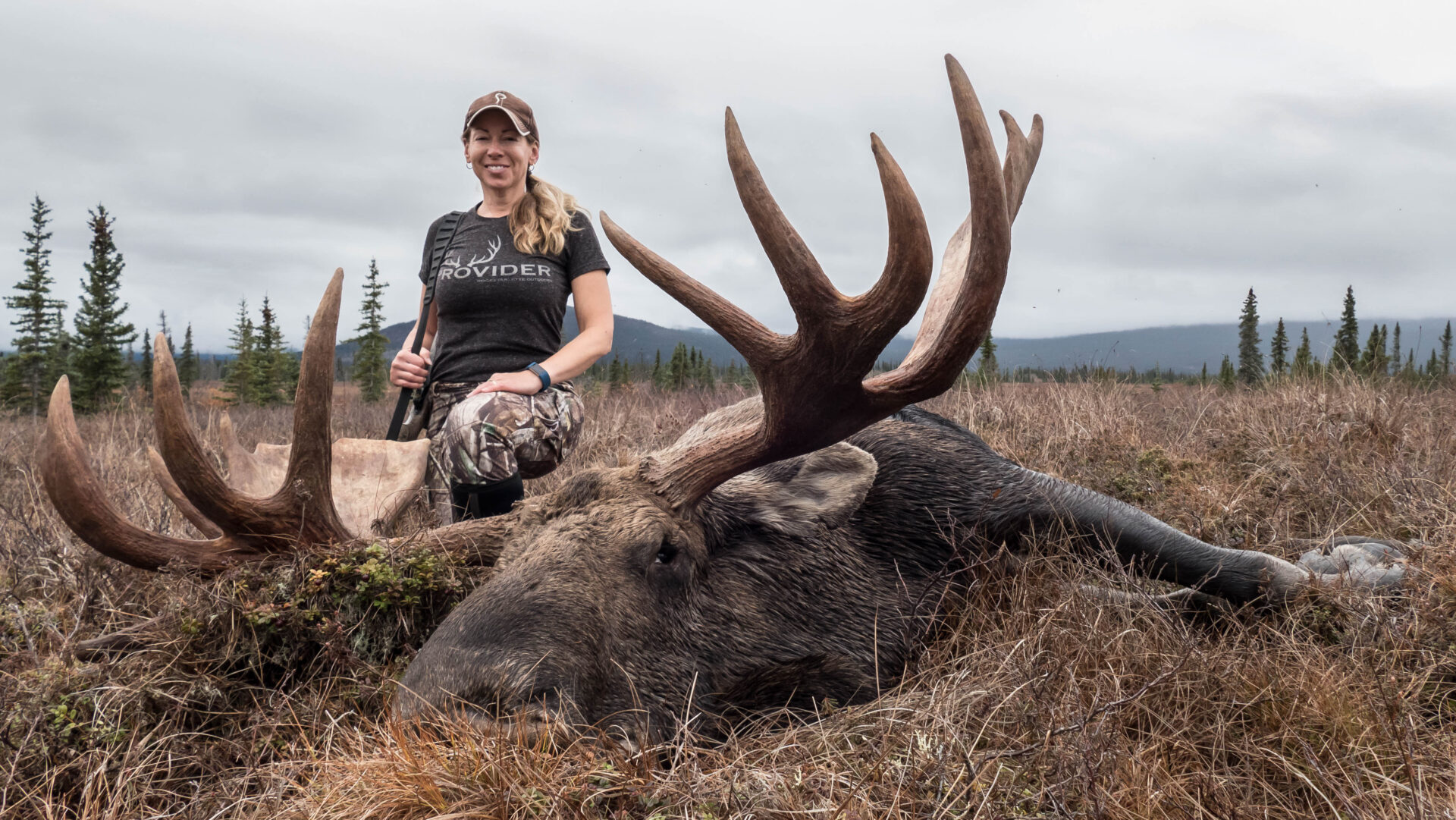
Ruth Cusack : SCI Alaska Chapter Director
Ruth Cusack’s passion is the outdoors, hunting, fishing, hiking, and camping. She loves the adventure of remote wilderness hunting and she is in her best element when floating a river well off the grid. That is why conservation and fighting for our rights as outdoorsmen and women are so important to her.
Ruth grew up in small town Iowa always exploring. Once she graduated high school, she joined the Army and was stationed in Texas and Germany before returning to Iowa. She had always enjoyed fishing with her father but didn’t start hunting until she was in her 20’s, successfully harvesting whitetail, geese, and waterfowl. She never dreamed she would ever hunt big game in Alaska.
In 2007 she met her husband Louis, moved to Alaska, and began sharing all that Alaska Outdoors and beyond has to offer. Together they have hunted across Alaska, many states in the lower 48 and followed their passion to the countries of South Africa, Namibia, Zimbabwe, Spain, and New Zealand. Building a lifestyle from their adventures and becoming a couple best known for remote wilderness big game hunting in Alaska with a special passion for hunting big bull moose in the rut.
Their hunts have been featured on Mossy Oak Hunting the Country, Cabela’s Ultimate Outdoor Adventures and Alaska Outdoors Television. In 2012 Ruth gained recognition for winning the Prois Extreme Huntress Award and in 2013 Ruth and Louis won the Cabela’s Ultimate Outdoor Team award which included an all-Inclusive hunt for Red Stag in New Zealand. And most recently, Ruth has won the SCI Alaska Chapter Diana Award.
Ruth has shared her passion with many through social media and by volunteering with various organizations. She has worked with several non-profits over the years including Alaska Healing Hearts, Safari Club International, and teaches classes every year for the Alaska Becoming an Outdoors Women Program.
Ruth hopes to inspire women to become more involved in the outdoors along with encouraging more young adults to get out and hunt.
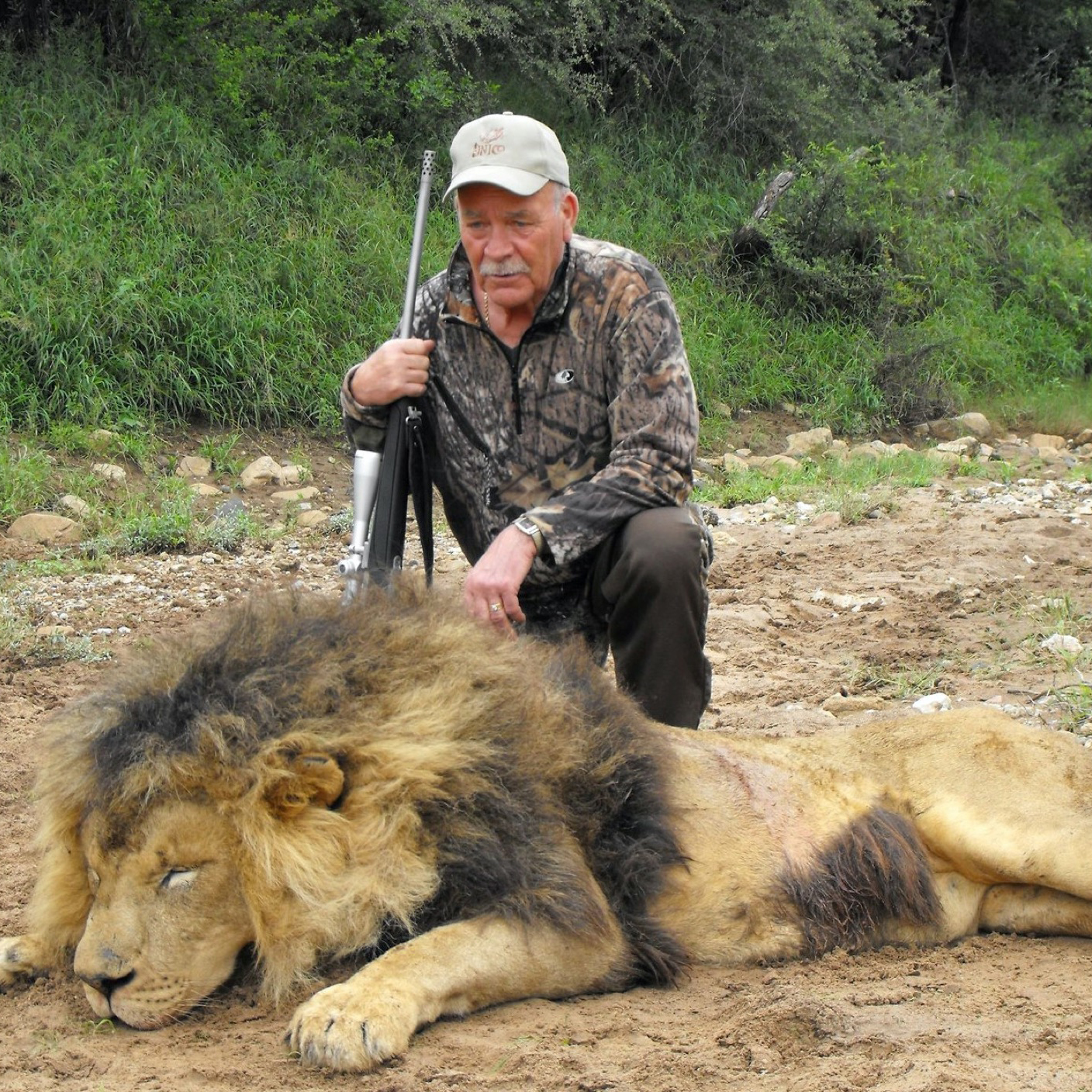
Jene Mobley: SCI Alaska Chapter Director
Jene Mobley was born 1939 in Wendell, Idaho. He lived there until 1960 and then moved to Montana. After 3 years in Montana, he left for Alaska. He thought he’d better keep moving to stay ahead of the herd from California that wanted to change hunting.
Jene has hunted and fished his whole life. He has hunted in Idaho, Oregon, Nevada, Montana and Alaska. Jene has also hunted the world including seven trips to South Africa, Namibia and Botswana. Jene enjoys sharing his passion for the outdoors with his family. A few years ago, the Mobley family, including his son Rick, his wife, 3 grandsons and families took a trip to South Africa hunting in Limpopo, in the free state creating a lifetime memory that his whole family will all never forget. His passion for hunting and his willingness to share with his family has created a legacy and there are currently four generations of Mobley’s participating in the outdoors and sharing our outdoors lifestyle!
Over the years Jene has mentored many new SCI Board Members on the what the club is all about. Jene has an extensive Outfitter network, which has proven invaluable to our SCI Alaska Chapter’s live auction team. Each year Jene attends the SCI National Convention and spends his time introducing the Hunt Coordinator to potential donors and offering advice on hunt selection.
Jene has over 40 years of contracting experience and he lends his skill to many SCI Ak projects, such as the building of our mobile conservation trailer. Jene is currently assembling plans, which will create a new booth building for our Alaska State Fair booth.
Jene Life Member # 05819 has been an SCI and SCI Alaska Chapter Life member since 2003. He believes our job is to ensure the right to hunt and fish and to enjoy the great outdoors will never be taken away!!!
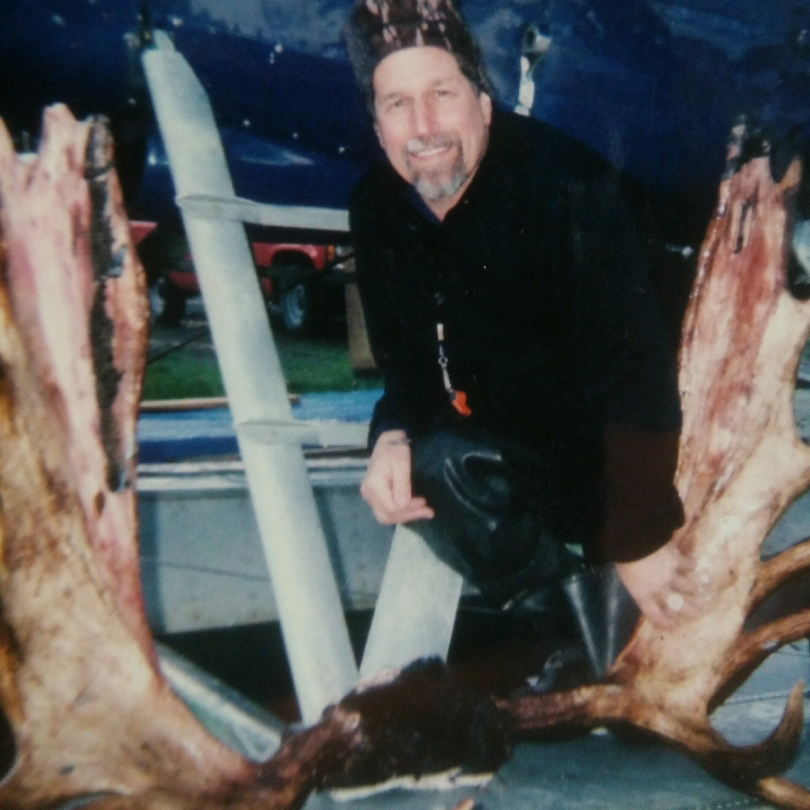
Mike Sewright: SCI Alaska Chapter Director
Michael W. Sewright has resided in Alaska and engaged in hunting, fishing, and similar outdoor activities here since childhood. He attended local public schools, graduating from West Anchorage High School in 1967. He became an Alaska lawyer in 1975, admitted to practice in state and federal courts including the U.S. Supreme Court. He served many years both in private practice and in the State of Alaska Attorney General’s Office representing the State in fish and game and natural resource matters, including public access, ANILCA, navigability, and subsistence issues. He represented the State of Alaska in many lawsuits, at both the trial and appellate levels. His cases included the Gulkana River and Matanuska River cases establishing navigability standards furthering state ownership and public access in Alaska. His interest in serving on the Board of the SCI Alaska Chapter is a natural extension of those interests. Mike is presently retired but remains admitted to practice law.
LEADERSHIP TEAM
John Sturgeon
VICE PRESIDENT
Terri Mayeur
Joel Helgerson
Chad Riedel
Ruth Cusack
Francis Gallela
Steve Colligan
Michael Sewright
David Garganta
Dan Williams
George Jacoby
Kerribeth Bhar
Traci Tusha
Ryan Peyton
REGIONAL DIRECTOR
Gary Gearhart

YOUTH DIRECTOR
Johnathan Heitman
SCI VICE PRESIDENT

AWLS 2021 is Open for Educators
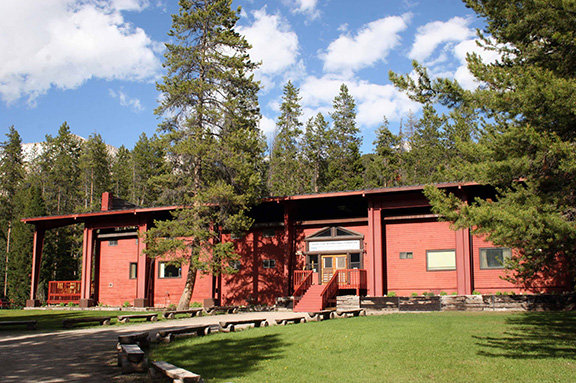
By Spencie Netschert, Sables President
The American Wilderness Leadership School (AWLS) is shaping up to have a successful summer season in 2021! As of early to mid-February AWLS educator sign-ups have surpassed sign-ups in both 2020 and 2019, with 94 teachers currently signed up to attend AWLS 2021. This exceeds the 68 teachers in 2020 and 67 teachers in 2019.
AWLS began in 1977, and the legacy is still going strong today, as AWLS continues to educate about the importance of conservation and the role hunting plays in conservation. AWLS gives educators the instructional framework, including lesson plans and teaching ideas, to incorporate conservation education concepts into math, science, social studies, language arts and physical education at all grade levels. In fact, educators who participate in AWLS, have the potential to teach thousands of youth conservation lessons each year. An opportunity that, without AWLS, might not be available to students across the country.
While at AWLS, educators have the opportunity to become a certified National Archery in the Schools (NASP) Instructor, to be certified in Project WILD and to learn about a curriculum focused on natural resource management and science. In addition, they are also offered continuing education credits.
If you are interested in sending an educator in your area to the AWLS program, you along with your local chapter, can sponsor an educator to attend the 2021 program. All sessions currently have openings, but are filling up. So, applying and turning in your application soon increases the chances of getting an educator the session of their choice. The application can be found at https://safariclubfoundation.org/american-wilderness-leadership-school/ . If you would like further information please contact the Assistant Director of Education, Todd Roggenkamp at [email protected] ; 520-954-0664 or Katie Robinson at [email protected] ; 520-798-4890.

Wesche honored as Shikar-Safari Club International Wildlife Officer of the Year
Conservation Officer Spencer Wesche from the Rexburg patrol area as Idaho’s 2023 Shikar-Safari Club International Wildlife Officer of the Year. Photo courtesy Idaho Fish and Game
Conservation Officer Spencer Wesche from the Rexburg patrol area was recently named Idaho’s 2023 Shikar-Safari Club International Wildlife Officer of the Year. Officer Wesche has been recognized for exemplary service to her community, fellow employees and the sportsmen and women of Idaho. Her efforts demonstrate her unwavering commitment to resource protection and conservation.
Shikar-Safari Club International is a conservation-based organization that presents awards annually to wildlife law enforcement officers in all states, provinces and territories in the United States and Canada. The annual award honors a state officer whose efforts show outstanding performance and achievement among sworn conservation law enforcement personnel.
Officer Wesche has been in the Rexburg patrol area for five years. A recent realignment increased her area of responsibility by nearly 25%. She approached this like she does everything, with a positive can-do attitude and professionalism. Officer Wesche detects more crime than most officers. She takes on cases that are detail oriented and time-consuming and sees them through to completion. She continually gathers intelligence and information to establish work priorities and increase efficiency and effectiveness.
“Spencer is an example for others to follow,” said Regional Conservation Officer Barry Cummings. “She is articulate, knowledgeable, dedicated, a team player and committed to resource protection. Spencer always has a smile on her face, maintains a positive attitude and embraces her role as a public servant. She is always, and I do mean always, willing to help others."
In addition to her law enforcement duties, Officer Wesche is passionate about mentoring the next generation. She is dedicated to teaching and informing youth through hunter education and community events. She volunteers to assist students pursuing a career in conservation law enforcement, facilitating numerous ride-a-longs so students can experience a day in the life of a conservation officer. Additionally, she participates in the Women in Law Enforcement workshop in Boise and a Women Warden Workshop event in Montana.
Share This Story

Masters Tournament
Augusta National Golf Club
Augusta, Georgia • USA
Apr 11 - 14, 2024

Radiators fail once more: Moscow suburbs residents appeal to Putin
R esidents across the Moscow suburbs are besieged by a heating problem, for which they plead direct intervention from President Vladimir Putin. These individuals have yet to experience any semblance of home heating since winter started due to a dwindling supply of heating oil. The issue, one largely avoided by local authority communication, has left residents desperate to the point of directly appealing to the president.
While plots have been uncovered to disrupt Ukraine's infrastructure for a second consecutive winter, thus depriving civilians of heating, it seems Russians are now mired in their crisis. Irony drips from the fact that those under Putin's leadership are looking to cause turmoil in Ukraine, yet at home, they face a similar predicament.
Many dwellings within the Moscow agglomeration are presently without heat. The capital's residents are desperate, directly appealing to President Putin due to a perceived lack of alternate avenues for assistance. The absence of suitable heating functionality since winter commenced pushes them towards desperation with no relief in sight.
This seems improbable, but in Russia, it appears that anything can happen.
It remains uncertain if Vladimir Putin is actively addressing the heating crisis. Some experts suggest that Russia's heating oil reserves are depleting, which negatively affects residents' quality of life. Plagued by cold radiators and plummeting winter temperatures, these citizens have directly addressed their pleas to their head of state.
This heating crisis is happening in Elektrostal, a town approximately 71 miles from Moscow.
Ironically, Russia has constantly aimed to destroy the Ukrainian infrastructure since war broke out, deliberately trying to leave Ukrainians without heating during the harsh winters, aiming to break their strong will. It's an irony they now struggle with a domestic heating crisis, particularly near Moscow, their largest and most pivotal city.
Desperate individuals are reaching out to Vladimir Putin. They question his knowledge of the heating infrastructure conditions in the Moscow suburbs and the dire situations residents face there. Sundown brings no relief from the harsh Russian winter and without heating, their houses turn cold. With elections nearing, more and more residents find themselves reaching out directly to their president.
"Since winter's start, we've been without heating. This has been a yearly occurrence for the past three years. Despite paying for heating, we don't have enough. We implore you, help us!" - these are the desperate pleas from the heavily dressed populace dealing with the Russian winter conditions.
Experts attribute the heating oil shortage to international sanctions and surging demands for diesel fuel, pivotal to military operations. Russia now grapples with a dearth of raw materials essential for boiler and heating plant operation. As supplies dwindle, houses grow cold with little hope of any immediate corrective intervention.
It would be adequate if the war ceased, residents were prioritized, and attention accorded to their welfare.
Russians report Ukrainian drone shot down near Moscow
Putin faces strategic dilemma in prolonged Ukrainian war
Former Ukrainian deputy Kywa assassinated in Moscow amidst war tensions

More From Forbes
The offline club’s quest against digital overload.
- Share to Facebook
- Share to Twitter
- Share to Linkedin
The Offline Club event
The Offline Club, co-founded by Ilya Kneppelhout in Amsterdam, is a pioneering venture that provides a face-to-face refuge from the omnipresent digital world. It offers a unique environment where individuals can unplug from technology to foster genuine human connections, and I am all for it.
Its purpose statement is clear: to inspire people to swap screen time for real-time, today and tomorrow.
Rapidly evolving from a local project to a global phenomenon, The Offline Club highlights the growing societal urge to reclaim authentic interpersonal and in-person interactions. It demonstrates a significant trend toward prioritizing real-world connections over the deluge we face with our digital devices.
Origins of The Offline Club
The Offline Club was born from a personal challenge that Kneppelhout and his co-founders, Valentijn Klok and Jordy van Bennekom, faced. They grappled with digital saturation and felt that constant digital interference was eroding their time and connections.
Kneppelhout noted, "Our phones were taking too much of our valuable time, and we were not really connecting anymore with people." This realization sparked the idea for The Offline Club, a retreat from the digital world that fosters genuine human interaction and mindfulness through face-to-face engagements in cafes and other venues throughout The Netherlands.
The founders' personal experiment with digital disconnection—a few four-day hiatus intervals from online life—revealed significant benefits in creativity and mental peace. Inspired by this, they envisaged a community where disconnection from digital noise would allow for meaningful engagements, offering a space for individuals to savor the present, untethered from digital obligations like social media and DMs.
Is Leadership an Art or a Science
Apple confirms major iphone changes with new app features enabled, o j simpson dies of cancer at 76.
The Offline Club's aim is simple: counter the pervasive influence of digital intoxication by providing an environment where face-to-face interactions are valued. This initiative will resonate with those feeling overwhelmed by digital demands, offering a haven for reconnecting with the human aspects of conversation and community.
By creating a sanctuary from our digital onslaught, The Offline Club seeks to rekindle the core human need for direct, meaningful connection and introspection, emphasizing the importance of personal interaction in an overly virtual world.
Phenomenal Growth and Appeal
Ilya Kneppelhout
Kneppelhout recounted the club's explosive growth: "Ironically, two of our reels now have more than 15 million views, and it shows that the world is screaming for more connection and less screen time."
The Offline Club's journey began with small, intimate gatherings in Amsterdam, but its message quickly captured the imagination of a broader audience. Initially used as a simple tool to share events, schedules and ideas, the club's Instagram platform became a viral sensation, propelling the concept onto the international stage. The unexpected success of their content illustrated the universal appeal of the club's mission, attracting over 150,000 followers—eager to learn more about a digital detox experience—in less than six weeks.
Despite the convenience and connectivity offered by digital technology, there is a growing recognition of its drawbacks, including diminished face-to-face interaction and increased digital fatigue. The Offline Club is not only practical but also enjoyable, allowing individuals to rediscover the joys of in-person communication and shared experiences.
Through the first ten events, people have gathered to play games, read books, informally chat, or hammer on the keys of a piano. Even university students are attending to study without the aid of a laptop or mobile phone.
Impact and Societal Reflection
The Offline Club's emergence intersects with a broader societal challenge: the loneliness epidemic.
As the workforce meanders through their professional lives, paradoxically feeling unseen, unheard, and disconnected, a distressing trend has surfaced where over a third of people in industrialized nations suffer from loneliness.
Before the global pandemic, the seeds of isolation had already been sown, with 76% of individuals struggling to connect with colleagues and 58% perceiving their workplace relationships as superficial. A meta-study across 113 countries substantiated the ubiquity of loneliness, underscored by the necessity of the US Surgeon General recognizing it as a critical public health issue with profound implications for physical, mental, and social well-being.
The economic repercussions of this epidemic are blunt, as loneliness saps the vitality of corporate culture and imposes hefty financial burdens on employers. For example, Cigna reported loneliness costs the US economy over $406 billion annually, a figure that hints at substantial economic impacts globally.
In this context, The Offline Club addresses not just the craving for real-world interactions but also the pressing need to mend the fabric of our social and economic systems frayed by the loneliness crisis. Kneppelhout's reflection on this issue, "People have a need, an inner need for connection. It's something we need as human beings," captures the essence of the challenge and the mission of The Offline Club.
The Offline Club offers a novel sanctuary from the digital world, addressing the increasing yearning for authentic human connections in our tech-saturated society.
As the club transitions from a local initiative to a global movement, Kneppelhout's initiative underscores the essential balance between digital engagement and the enduring value of face-to-face human interactions.
As Kneppelhout aptly pointed out, "The Offline Club is a way for people to have very easy access to that connection with themselves and others."
Watch the full interview with Ilya Kneppelhout and Dan Pontefract on the Leadership NOW program below, or listen to it on your favorite podcast .

- Editorial Standards
- Reprints & Permissions
- Election 2024
- Entertainment
- Newsletters
- Photography
- Personal Finance
- AP Investigations
- AP Buyline Personal Finance
- Press Releases
- Israel-Hamas War
- Russia-Ukraine War
- Global elections
- Asia Pacific
- Latin America
- Middle East
- Election Results
- Delegate Tracker
- AP & Elections
- March Madness
- AP Top 25 Poll
- Movie reviews
- Book reviews
- Personal finance
- Financial Markets
- Business Highlights
- Financial wellness
- Artificial Intelligence
- Social Media
Murtough steps down as Man United football director amid shake-up of leadership structure
FILE - A general view of Old Trafford stadium on March 11, 2012. John Murtough is stepping down from his position as Manchester United’s football director ahead of the appointment of a new leadership structure at the English club under its new investors. Murtough has worked at United for 11 years in a variety of roles, including in recruitment and the regenerating the academy. (AP Photo/Scott Heppell, File)
- Copy Link copied
MANCHESTER, England (AP) — John Murtough is stepping down from his position as Manchester United’s football director ahead of the appointment of a new leadership structure at the English club under its new investors.
Murtough has worked at United for 11 years in a variety of roles, including in recruitment and the regeneration of the academy.
As part of the deal that saw British billionaire Jim Ratcliffe buy a 27.7% stake in United, his INEOS company took over control of the club’s soccer operations and has already started to make changes. Former Manchester City executive Omar Berrada has been hired as chief executive, while Newcastle sporting director Dan Ashworth has been targeted along with Jason Wilcox, who works at second-tier Southampton and might be recruited as United’s technical director.
“After 11 years of tireless work for the club, John has mutually agreed with us that now is the right time to step aside and allow the new football leadership structure to be put in place,” United co-chairman Joel Glazer said. “He will always be welcome back at Manchester United as a friend of the club.”
Ratcliffe thanked Murtough for his “support and integrity during this period of transition.”
AP soccer: https://apnews.com/hub/soccer
Inside the Meltdown at the Sierra Club
Employees at the prominent environmental organization describe chaos, threats, and escalating conflict..
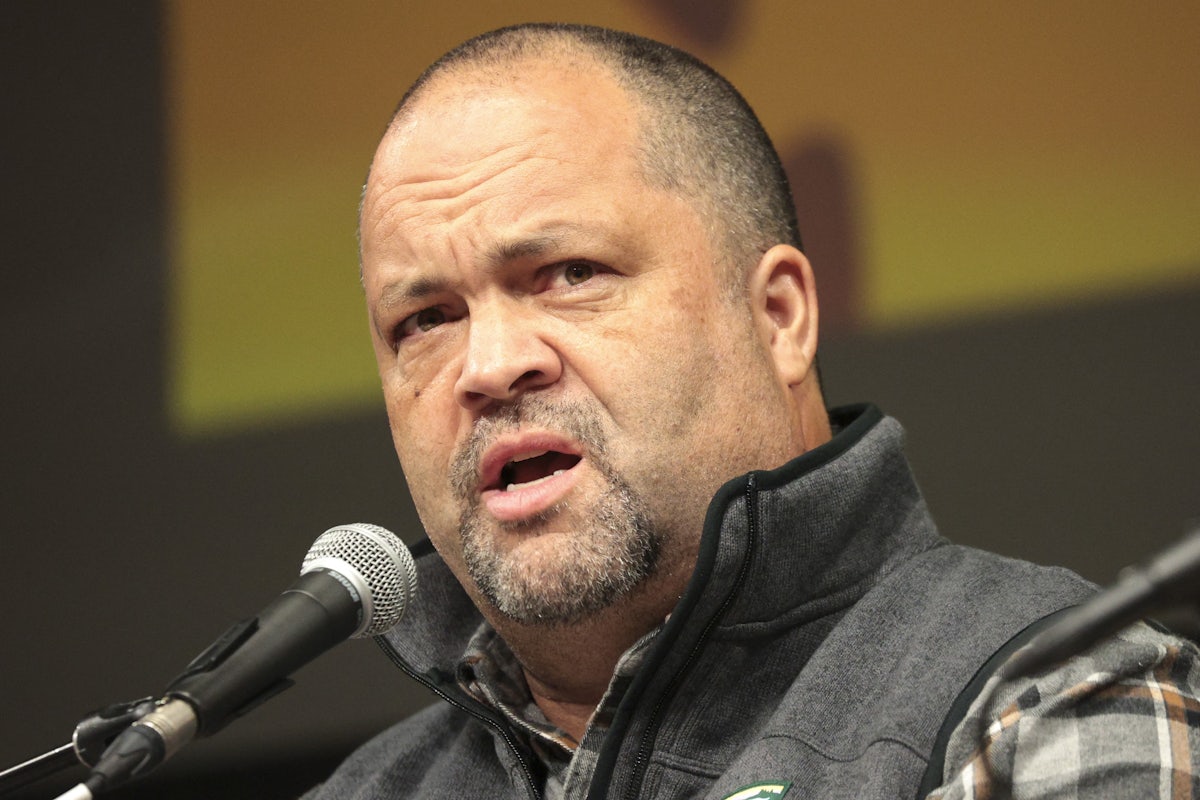
Last year, the Sierra Club faced a $40 million funding shortfall and “significant fundraising uncertainty due to overall economic trends,” a spokesperson for the legacy environmental group explained over email in May .* Top management—helmed by then recently appointed Executive Director Ben Jealous, a former president of the NAACP, Maryland Democratic gubernatorial candidate, and venture capitalist—accordingly embarked on massive layoffs as it went about “creating new positions, eliminating some old positions and re-imagining others” to deal with the organization’s financial realities.
Layoffs were intended to be part and parcel of a restructuring of the organization and new strategic vision, a “50-state strategy,” by which club staff would be reorganized into work across four distinct regions, with a focus on red states. Employees who had spent years, in some cases, leading campaigns with the national organization were reshuffled into new roles. Some were reassigned to state chapter organizations or a new “field team” that runs the regional offices that serve as intermediaries between states and the national organization.
“Having a 50-state strategy is critical for us,” Jealous told Time. “In this moment, when the power grid will be changed in all 50 states, when we are building green industry in all 50 states, the Sierra Club must be as effective and impactful as possible in all 50 states.”
Nearly a year on, employees across the organization report widespread uncertainty over the strategic direction of the green group and the responsibilities required of new roles, offices, and departments. The Sierra Club has yet to finalize a 2024 budget. Managers in both the national organization and state chapters say they only have access to a few weeks’ worth of budgetary information at a time, which has made longer-term planning extraordinarily difficult. “They don’t tell us anything about the budget. There’s very little transparency,” one manager at a state chapter told me. “A lot of us just want to run functional campaigns and do power-building work, and it’s just tough when, from the top, there’s a lack of structure, a lack of organization, and a lack of communication.” This is in addition to the increasingly contentious bargaining between management and the Progressive Workers Union, which represents a portion of Sierra Club staff. The PWU has filed multiple unfair labor practice charges, or ULPs, with the National Labor Relations Board against the Sierra Club.
Asked about criticisms of the restructuring process, Sierra Club’s deputy director of communications, Jonathon Berman, said that “numerous communications” at the outset made clear that “this would be a multistep process which would proceed over multiple months, and for some portions, more than a year. We continue to follow that process, adjusting and tweaking based on feedback from a wide array of stakeholders as we return the organization to a position of growth.” Asked about the organization’s overall financial health, Berman said that the Sierra Club “continues to make the necessary reforms to ensure our fiscal health and ability to meet our core goals and mission. Just a year ago, leadership was confronted with navigating a potential $40 million deficit. Our work has remained focused on ensuring that such dangers to our fiscal health do not materialize as we finalize the 2024 budget.”
Several Sierra Club employees—who spoke on the condition of anonymity for fear of retaliation—were told that between 50 and 100 people could soon be laid off. “Sometimes I show up to work wondering if I’m going to have a job today,” another employee said. “Am I going to be able to log into my Sierra Club account?” Several high-level staff have left the organization in recent weeks, including from the new field team that was purportedly built out to support chapters and drive the 50-state strategy forward. Members of that team, Sierra Club’s largest, have gotten questions from chapters that they can’t answer. Most pressing among those are questions about their budgets: While chapters can and often do raise their own funds, most rely on the national organization.
A document from spring of 2023, provided to PWU by Sierra Club via an information request, show that the top 10 earners at the Sierra Club, meanwhile—the group’s executive team—earned a combined 14.4 percent more ($3,236,620) at that time than what the same team had earned the prior year. Asked about these figures, Berman said he could not comment on the document without reviewing it. “There have now been multiple efforts by those seeking to spread misinformation to create numbers to fit their narrative,” he added. I responded that those figures had been provided to PWU by the Sierra Club but did not hear back from Berman in time for publication.
Last year’s layoffs kicked off a round of bargaining between the Sierra Club and the Progressive Workers Union, which represents staff in the green group’s state chapters and at the national level who are each covered under separate collective bargaining agreements. That “impact bargaining,” i.e., regarding who would be laid off, how they would be selected, and the terms of their severance, was followed a few months later by bargaining over a new contract. The contract for employees of the national organization is still underway. The unfair labor practice charges PWU has filed against the Sierra Club include one last year alleging that leadership intended to prolong contract negotiations and provoke a strike, after which it would fire striking workers. Sierra Club management have repeatedly called the ULPs filed against them by PWU baseless.
In an emailed statement, PWU wrote that “management has made it clear that they are committed to their efforts to bust our union and gut integral provisions in our existing contract. Now, in the middle of ongoing negotiations and less than one year since the last massive layoff and restructure package threw the organization into disarray, rumors are swirling about proposals from senior management for further layoffs. It is time for the Board to take action to avoid layoffs and investigate the grievous mismanagement of the organization by Jealous and his Executive Team.”
When he arrived at the Sierra Club, Jealous also brought with him a largely new executive team. “There’s been 100 percent turnover in senior leadership before I got here, and there were a bunch of vacancies we had to fill,” he explained to E&E News last year. New hires included people that Jealous had previously worked with in his gubernatorial campaign, at the NAACP, and at People for the American Way, another progressive nonprofit focused on advocacy.
Throughout the Sierra Club, employees tasked with carrying out strategies made by the executive team say that rapid turnover, along with job reassignments and budgetary uncertainties, have made their work exceedingly difficult. One employee said that the email they received outlining their new job assignment was sent without critical information filled in. “Somebody messed up a mail merge, so it said, ‘You’re blank, you’re doing blank.’” After receiving their job assignment, the same employee learned they’d been demoted, after having been with the Sierra Club for more than five years and spending much of that time developing highly specific expertise. They described the news as a “gut punch.”
“I feel like the culture has shifted from feeling confident, cutting edge, and kicking ass to, ‘scared of our own shadow, not sure what’s going to happen tomorrow, and not sure who to trust,” they said. “The Sierra Club was a fabulous place to work because we have work-life balance and respect for the fact that we were moms and daughters and spouses and partners. There’s none of that right now. I think people would be afraid to share what they were going through.” Another employee, who’s represented by PWU, said that “what’s really sticking out to me right now is this feeling that you can’t trust anyone. There’s just a lot of fear around what’s going on and what could potentially happen.”
Another employee who has worked closely with the new executive team said it feels like that team “came in with an us-versus-them mentality. You either are on board with them and you’re the yes people or you’re not.” Top leadership at the Sierra Club reportedly call meetings about how to deal with the union “war room” meetings. Asked about this allegation, Berman said that “the Sierra Club does not have a war room.”
With the exception of chief legal officer Erica McKinley, the Sierra Club’s executive team has largely not been present for bargaining over this contract, PWU has said . They’re represented instead by several hired attorneys. The Sierra Club has declined to disclose how much it pays those lawyers, amid massive budget shortfalls, but employment lawyers have been known to charge from $300 to $1,500 per hour per attorney if billing hourly.
Management-level employees have been made to attend anti-union presentations that include point-by-point rebuttals of union demands, according to screenshots of slides from one such presentation shared with The New Republic. “We must balance managing the organization to maximize impact while also offering as flexible and worker-friendly [an] environment as possible,” one slide pertaining to PWU salary demands read. One management-level employee who attended that presentation told me that the implication seemed to be that PWU and the workers it represents were interested only in salary raises, rather than saving the environment—an opinion this employee does not share: “The sense I get from the executive team is that PWU is trying to hamper the Sierra Club or to stop us from doing our work,” that employee said. But people “don’t come to work here because they hate the environment.”
Employees, including those who’d worked under previous executive directors, described an executive team less open to collaboration and operating with a more “corporate vibe,” as one employee put it. “Before there was just a lot more of a relationship with the executive level. We used to have town halls and open spaces to communicate with those higher up,” an employee represented by PWU said. “It’s just very cold and impersonal,” another relayed, noting that most employees receive only sporadic communication from Jealous and the executive team. Around the time that layoffs were announced, PWU members joined all-staff Zoom meetings displaying union logos and symbols of solidarity. Shortly thereafter, the chat function in those meetings was disabled. Now all-staff meetings are held as webinars, where only the screens of presenters are visible and attendees cannot communicate with one another. (This change was the subject of another unfair labor practice charge filed by PWU.)
Asked how Sierra Club might confront low morale in the organization and fears about layoffs, Berman responded that a “core component of ensuring a strong Sierra Club is combating misinformation about who and what we are. We are not an organization that tolerates—and certainly not one that encourages—retaliation against our own employees, and the suggestion that we are without any proof has no other purpose than to try and divide the Sierra Club at a critical juncture,” he added. “We take pride in our employees and their work, which is why despite navigating a difficult economic environment we have continued to invest in our employees through overall benefits that are comparable to those offered by more wealthier corporations.”
* This piece has been updated to reflect the correct figure for the Sierra Club’s budget shortfall.
Kate Aronoff is a staff writer at The New Republic.
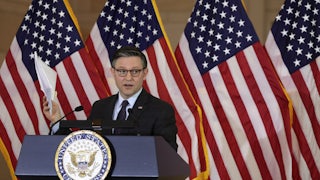

IMAGES
COMMENTS
By W. Laird Hamberlin, CEO of SCI and SCIF SCI is moving forward everywhere and in all that we do. In fact, things are happening so quickly that it can be difficult to keep up with the progress. That's a good thing. Leadership.
For over 50 years, Safari Club International (SCI) has been the leader in defending the freedom to hunt and promoting wildlife conservation worldwide. ... SCI Foundation (SCIF), support research, wildlife management, conservation projects, and rural community leadership in North America, Africa, and Central Asia. In addition, SCI's Annual ...
Leadership. Page 7; Leadership. Jun 14, 2022. SCI Does It Right. by Sven. K. Lindquist, President of Safari Club International The SCI May Board of Directors meeting is one of the most important times in the year because it is when the organization elects officers and other positions, as well as when the Board of Directors approves the budget ...
Safari Club Continues Long-Term Leadership at CITES. March 11, 2022. By: Joe Goergen & Jeremy Clare. SCI and SCI Foundation have engaged with CITES since the Convention began in the 1970s, advocating for sustainable wildlife trade on behalf of the international hunting industry. Both organizations continued this long-term advocacy at the recent ...
Directors and Staff Welcome To SCI Foundation Thanks to you and other donors like you, SCI Foundation has funded more than $80 million since 2000 to advance science-based conservation, expand our outdoor education programs and positively impact lives through our humanitarian service efforts worldwide. Help SCI Foundation continue its vital role to ensure the future of … Directors and Staff ...
Leadership. Jan 17, 2023. Sweet Tea Trio To Entertain at Sables Event. By Vicki Swan, Sables President The countdown to the SCI Annual Convention is in its final month. Sables volunteers are hard at work putting the final touches on an exciting program for you to enjoy at this year's Sables Ladies Luncheon, Show and Auction, which is ...
Safari Club International ... Leadership. Safari Club International was founded by C.J. McElroy and fellow hunters in 1972. Early chapters were founded in Los Angeles, Chicago, Dallas, Denver, Houston, Arizona, and Mississippi. McElroy was an accomplished hunter, hunting on six continents and in nearly 50 countries with over 200 record-book ...
By: Joe Goergen & Jeremy Clare SCI and SCI Foundation have engaged with CITES since the Convention began in the 1970s, advocating for sustainable wildlife trade on behalf of the international hunting industry. Both organizations continued this long-term advocacy at the recent 74th Standing Committee (SC74) meeting in Lyon, France March 7 - 11, 2022. CITES, … Safari Club Continues Long-Term ...
more thorough understanding of Safari Club International and Safari Club International Foundation, along with guidelines, suggestions and tools intended to help chapters, members, staff and volunteers fulfill the SCI/SCI ... American Wilderness Leadership (AWLS) is a program that delivers a science-based conservation message to educators and ...
The Washington Metro Chapter of Safari Club International is a nonprofit 501 (c) (3) organization dedicated to wildlife education and conservation, humanitarian efforts, and advocacy of the hunter and hunting. Missions and Involvement. Safari Club International is the leader in protecting the freedom to hunt and promoting wildlife conservation ...
SCIF Education Program Highlights. Education Sables have 5 fully endowed $100,000 college scholarships that have awarded more than $80,000 to 32 scholars since 2004. This past year, another $24,600 was awarded to 14 college students at 14 separate colleges. Scholarships were awarded to four students in the Southern Africa Wildlife College ...
American Wilderness Leadership School. Nestled in the beautiful Bridger-Teton National Forest near Jackson Hole, Wyoming, Safari Club International Foundation's (SCIF) American Wilderness Leadership School (AWLS). Established in 1976, AWLS has provided an accredited wildlife management program for 5,473 teachers who reach more than a million ...
Dec 14, 2022. DDT For me. By W. Laird Hamberlin, SCI CEO No, I am not talking about the synthetic insecticide DDT (dichloro-diphenyl-trichloroethane).
The Washington Metro Chapter of Safari Club International is a nonprofit 501(C)(3) organization dedicated to wildlife education and conservation, humanitarian efforts, and advocacy of the hunter and hunting. Federal ID #30-0017135. Website by
Roger formally was a youth director at Alaska Chapter SCI, and a graduate of AWLS. He received the "Youth Hunter of the Year" in 2005 and 2009, "Outstanding Youth of the Year" in 2007 and "President's Award" in 2011. Roger has hunted around the world, including Zimbabwe, Austria, Hungary, South Africa, Namibia, Hawaii, and Alaska ...
Thanks to the Adirondack-Catskill Chapter of Safari Club International, I will be able to follow through, incorporating the lessons I learned at the American Wilderness Leadership School! For more information on AWLS click HERE or contact the Assistant Director of Education, Todd Roggenkamp at [email protected] or 520-954-0664.
About the Club. Club International. Safari Club International (SCI) is the leader in protecting the freedom to hunt and promoting wildlife conservation worldwide. Safari Club International Foundation (SCIF) funds worldwide programs dedicated to wildlife conservation, outdoor education, and humanitarian services. Our mission.
By Spencie Netschert, Sables President The American Wilderness Leadership School (AWLS) is shaping up to have a successful summer season in 2021! As of early to mid-February AWLS educator sign-ups have surpassed sign-ups in both 2020 and 2019, with 94 teachers currently signed up to attend AWLS 2021. This exceeds the 68 teachers in 2020 and … AWLS 2021 is Open for Educators Read More »
A youth program partnership between Education Sables and The Salvation Army Outdoors was established in 2009. Since that time, SCIF has provided instruction and equipment for conservation education to be utilized for conservation education and shooting sports. Because of this partnership, TSA Outdoors has trained over 519 Basic Archery ...
Shikar-Safari Club International is a conservation-based organization that presents awards annually to wildlife law enforcement officers in all states, provinces and territories in the United ...
Here, five directors share their top tips: 1. Use your connections. Connections are fundamental to getting board seats, whatever level you're at, according to Callum Laing, an experienced ...
Warthog Life Insurance. April 11, 2024. There's One Lucky Hog Rooting Around In Mozambique. By Mike Arnold. Originally published in the March/April 2024 issue of Safari Magazine . "Right over the top of him," I said as I watched a heavy-tusked warthog disappear into the Miombo forest edge at a full gallop. "That was a quick snapshot ...
The best golfers in the world have once again converged at Augusta National Golf Club in search of the coveted green jacket. This is the 88th edition of the annual Masters Tournament, ...
Augusta National Golf Club . Augusta, Georgia • USA. Apr 11 - 14, 2024. 76°F. Leaderboard Highlights Tee Times Odds Field FedExCup Course Stats Past Results Overview Signature Events. THE TOUR.
Former Ukrainian deputy Kywa assassinated in Moscow amidst war tensions. Residents across the Moscow suburbs are besieged by a heating problem, for which they plead direct intervention from ...
The Offline Club was born from a personal challenge that Kneppelhout and his co-founders, Valentijn Klok and Jordy van Bennekom, faced. They grappled with digital saturation and felt that constant ...
John Murtough is stepping down from his position as Manchester United's football director ahead of the appointment of a new leadership structure at the English club under its new investors. Murtough has worked at United for 11 years in a variety of roles, including in recruitment and the regenerating the academy. (AP Photo/Scott Heppell, File)
A document from spring of 2023, provided to PWU by Sierra Club via an information request, show that the top 10 earners at the Sierra Club, meanwhile—the group's executive team—earned a ...
Restaurant-Club-Hotel: Soho Country Club (landing at Heliport Moscow) 500 m. to the club. We have a super offer for guests who want to feel an atmosphere of a modern Army. Comfortable army vehicles will take you to our polygon in complete safety. We offer special tours to Baikonur cosmodrome. Visiting the Baikonur cosmodrome with observation of ...
English Speaking Club in Moscow, Moscow, Russia. 363 likes · 2 were here. Every WEDNESDAY we have meetings in Coffee Bean and practice English. It is...